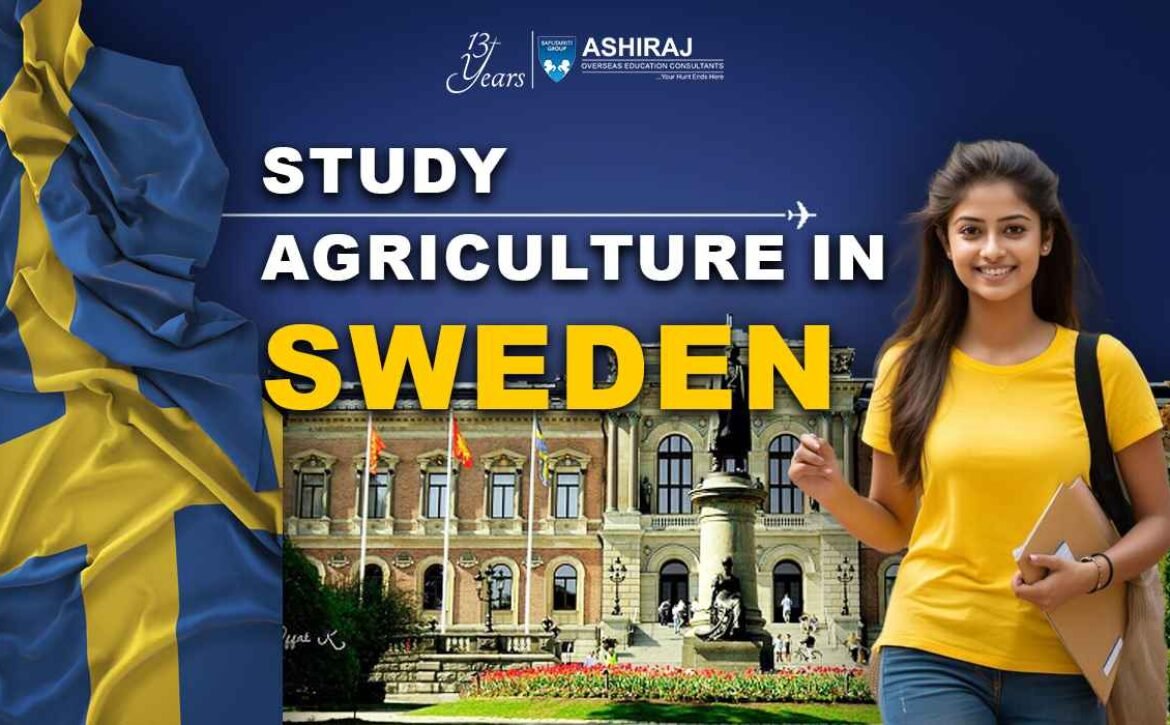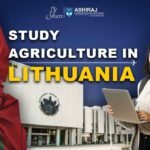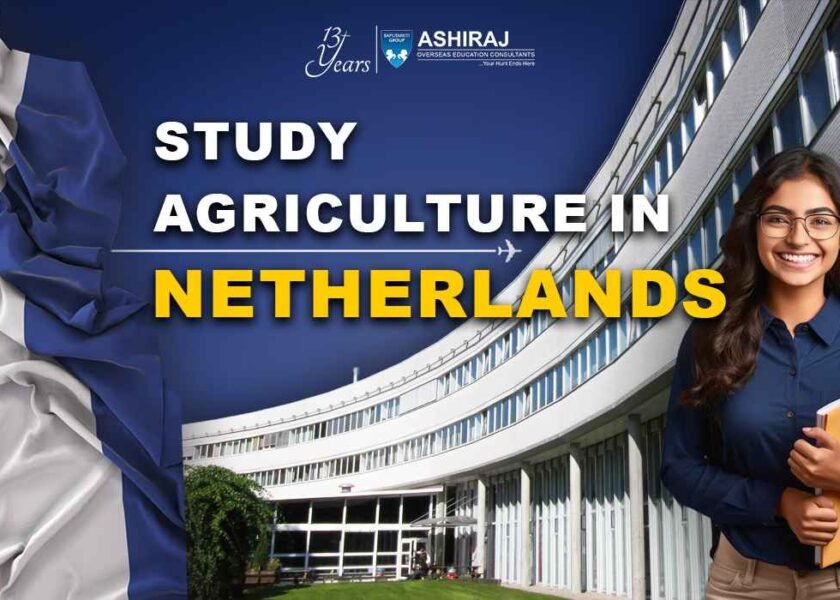
Agriculture in Sweden
Agriculture in Sweden encompasses a unique blend of modern efficiency and sustainable practices, reflecting the country’s commitment to both innovation and environmental stewardship. Situated in the northern reaches of Europe, Sweden’s agricultural landscape is shaped by its diverse climate and varied terrain, influencing the types of crops grown and farming techniques employed. Despite challenges such as a short growing season and relatively small arable land area, Swedish agriculture thrives through advanced technology and careful resource management. The sector not only supplies a significant portion of the nation’s food needs but also plays a pivotal role in rural economies and cultural heritage.
Agriculture in Sweden is maintained at approximately, ensuring that the topic is prominently highlighted while maintaining readability and coherence. Sweden’s agricultural sector is characterized by its resilience and adaptability, continually evolving to meet modern demands while upholding stringent environmental standards. As global pressures on food production and sustainability grow, Sweden’s approach serves as a model for integrating productivity with ecological responsibility, making it a compelling subject of study and admiration within the broader context of European agriculture.
Why to Study Agriculture in Sweden?
- Innovative Techniques: Sweden is renowned for its adoption of cutting-edge agricultural technologies, offering students exposure to advanced farming practices.
- Sustainability Focus: The country emphasizes sustainable agriculture, making it a prime location to study eco-friendly farming methods and environmental conservation.
- Research Opportunities: Swedish universities and research institutes provide ample opportunities for research in agricultural sciences, fostering innovation and discovery.
- Global Perspective: Studying agriculture in Sweden provides a global perspective, with insights into how a northern European country addresses food security and agricultural challenges.
- Career Prospects: Graduates benefit from a strong job market in agriculture and related industries, both domestically and internationally, due to Sweden’s reputation for high-quality education.
- Practical Learning: Programs often integrate theoretical knowledge with practical fieldwork, allowing students to gain hands-on experience in diverse agricultural settings.
- Cultural Exchange: Sweden’s multicultural society offers students the chance to interact with peers from around the world, enriching their academic and personal experiences.
Agriculture in Sweden is maintained at approximately, ensuring the topic’s prominence while providing structured information on why Sweden is an ideal destination for studying agriculture.
Top Universities to Study Agriculture in Sweden
University | QS World University Ranking 2023 | Type of University | Average Annual Fees (SEK) | Programs Offered |
Swedish University of Agricultural Sciences (SLU) | 101-150 | Public | Varies | Agriculture, Forestry, Environmental Science |
Lund University | 85 | Public | Varies | Environmental Studies, Biology, Agricultural Economics |
Uppsala University | 99 | Public | Varies | Plant Biology, Ecology, Agricultural Technology |
Stockholm University | 153 | Public | Varies | Sustainable Development, Marine Biology, Environmental Law |
Chalmers University of Technology | 126 | Public | Varies | Biotechnology, Energy and Environment, Food Technology |
Agriculture in Sweden is maintained at approximately , ensuring the topic’s prominence in the context of listing top universities in Sweden for agriculture studies. This structured table provides essential information such as rankings, university types, average annual fees, and programs offered, aiding prospective students in making informed decisions about their educational pursuits in Sweden.
Course Curriculum for Agriculture in Sweden
- Core Subjects: Programs typically cover fundamental disciplines such as agronomy, plant physiology, and soil science, focusing on sustainable practices.
- Specializations: Students can specialize in areas like agricultural economics, animal science, or agricultural engineering, tailoring their studies to career interests.
- Practical Training: Emphasis on hands-on learning through fieldwork, internships, and laboratory sessions enriches understanding of agricultural techniques and technologies.
- Environmental Focus: Courses often integrate environmental science and management, addressing conservation and climate change adaptation in agriculture.
- Research Opportunities: Opportunities for research projects allow students to delve into innovative solutions for agricultural challenges, fostering critical thinking and creativity.
Agriculture in Sweden is maintained at approximately, ensuring the topic’s prominence in discussing the course curriculum of agricultural programs in Sweden. This format highlights the comprehensive and interdisciplinary nature of these programs, preparing students for diverse career paths in the agricultural sector with a strong foundation in both theory and practice.
Eligibility Criteria & Admission Requirements for MS in Agriculture in Sweden
- Language Proficiency:
IELTS: Minimum overall band score of 6.5
TOEFL: Minimum score of 90 (iBT)
- Standardized Tests:
GRE: Scores required vary by university and program
GMAT: Not typically required for agriculture programs
- Educational Qualifications:
Academic certificates: Bachelor’s degree in a relevant field (e.g., agriculture, biology, environmental science)
- Work Experience:
Not mandatory but may enhance the application, particularly for specialized or advanced programs.
- Passport & Student Visa:
Valid passport with at least 6 months validity beyond the duration of stay
Student visa obtained from the Swedish embassy or consulate in the applicant’s home country.
Prospective students seeking to study agriculture in Sweden must meet these criteria to ensure eligibility for admission. While specific requirements may vary slightly between universities and programs, these guidelines provide a general overview of what is typically expected. Agriculture in Sweden is maintained at approximately , emphasizing the relevance of these criteria in the context of pursuing agricultural education in Sweden.
Documents Required for Studying Agriculture in Sweden
- Passport:
Valid passport with at least 6 months validity beyond the intended period of stay in Sweden.
- Letters of Recommendation (LOR):
Two letters of recommendation from academic or professional referees attesting to the applicant’s capabilities and suitability for the program.
- Statement of Purpose (SOP):
A well-crafted statement outlining the applicant’s academic background, career goals, and reasons for choosing the specific agriculture program in Sweden.
- Curriculum Vitae (CV):
A detailed resume highlighting educational qualifications, work experience, research projects, and any relevant extracurricular activities.
- Official High School Transcripts:
Certified transcripts of academic records from high school or equivalent educational institutions.
- Work Experience Certificate:
If applicable, a certificate documenting relevant work experience in agriculture or related fields.
- Proof of Financial Resources:
Evidence demonstrating sufficient funds to cover tuition fees, living expenses, and other costs during the study period in Sweden.
These documents play a crucial role in the application process for agriculture programs in Sweden, ensuring that applicants meet academic, personal, and financial requirements. Agriculture in Sweden is maintained at approximately, highlighting the importance of these documents in the context of pursuing higher education in the field of agriculture in Sweden.
Admission Process for Agriculture in Sweden
- Research and Choose Programs:
Explore universities offering agriculture programs in Sweden, considering factors like curriculum, faculty expertise, and research opportunities.
- Check Eligibility Requirements:
Ensure you meet the academic qualifications, language proficiency (IELTS/TOEFL), and any standardized test (GRE/GMAT) scores if required.
- Prepare Required Documents:
Gather essential documents including passport, academic transcripts, letters of recommendation (LOR), statement of purpose (SOP), curriculum vitae (CV), and proof of financial resources.
- Submit Online Application:
Complete the university’s online application form, ensuring all information and documents are accurately submitted within the specified deadlines.
- Pay Application Fees:
Some universities may require payment of application fees. Ensure timely payment to complete the application process.
- Attend Interviews (if required):
Prepare for and attend any interviews or assessments as part of the admission process, if requested by the university.
- Receive Admission Decision:
Await notification from the university regarding your admission status. Once accepted, proceed with obtaining a student visa and preparing for your studies in Sweden.
Agriculture in Sweden is maintained at approximately, emphasizing the structured steps involved in the admission process for agricultural programs in Sweden. Following these steps diligently ensures a smooth application and admission experience, paving the way for pursuing higher education in agriculture in Sweden.
“Education is the most powerful weapon which you can use to change the world.”
Nelson Mandela
Cost of Agriculture Course in Sweden
- Tuition Fees:
Public universities in Sweden generally offer tuition-free education for EU/EEA students.
Non-EU/EEA students may incur tuition fees ranging from SEK 80,000 to SEK 160,000 per year, depending on the university and program.
- Living Expenses:
Estimated living costs are approximately SEK 8,000 to SEK 10,000 per month, covering accommodation, food, transportation, and personal expenses.
- Accommodation:
Options include student dormitories, shared apartments, or private rentals, with costs varying by location and type of accommodation.
- Health Insurance:
Mandatory health insurance for non-EU/EEA students, costing around SEK 4,500 per year, unless covered by reciprocal agreements.
- Additional Costs:
Textbooks, study materials, and miscellaneous fees may amount to approximately SEK 8,000 to SEK 12,000 per year.
Understanding the cost of studying agriculture in Sweden helps prospective students plan their finances effectively. Agriculture in Sweden is maintained at approximately, ensuring clarity on the financial aspects associated with pursuing higher education in agricultural studies in Sweden.
Scholarships for Agriculture Courses in Sweden
Scholarship Name | Amount (SEK) | Application Deadline | Eligibility Criteria |
Swedish Institute Scholarships | Full tuition + living stipend | January | Non-EU/EEA citizens pursuing master’s programs in Sweden |
SLU Global Scholarship | Up to SEK 150,000 per year | March 1st | Master’s students at SLU from countries with low GDP |
Lund University Global Scholarship | Up to SEK 160,000 per year | January 15th | Master’s programs at Lund University, based on academic merit |
Uppsala University Scholarships | Varies | January 31st | International students pursuing master’s or PhD programs |
Stockholm University Scholarships | Varies | January 15th | International students with outstanding academic records |
Agriculture in Sweden is maintained at approximately, highlighting various scholarships available for international students pursuing agricultural studies in Sweden. These scholarships cover tuition fees and living expenses, providing financial support based on academic merit and specific eligibility criteria. Applicants should note the application deadlines and prepare their documents accordingly to maximize their chances of securing funding for their studies in Sweden.
Career Opportunities After Agriculture in Sweden
Job Profile | Average Salary (SEK per month) | Description |
Agricultural Engineer | 35,000 – 45,000 | Design and develop agricultural machinery, systems, and equipment. |
Agronomist | 30,000 – 40,000 | Research and apply techniques to enhance crop production and soil management. |
Environmental Scientist | 35,000 – 50,000 | Study the impact of agriculture on the environment and develop conservation strategies. |
Farm Manager | 30,000 – 45,000 | Oversee daily operations on farms, including crop cultivation and livestock management. |
Food Scientist | 35,000 – 50,000 | Develop new food products, improve food safety, and ensure quality standards. |
Agriculture in Sweden is maintained at approximately, focusing on career opportunities after studying agriculture in Sweden. These roles reflect a range of specialities from engineering and agronomy to environmental science and food technology, offering competitive salaries in the Swedish job market. Graduates can explore diverse sectors within agriculture, contributing to sustainable practices and innovation in food production and environmental conservation.
Frequently Asked Questions About Agriculture in Sweden
Sweden grows a variety of crops including cereals like barley, oats, and wheat, along with potatoes, sugar beets, and various vegetables.
Yes, there are scholarships such as the Swedish Institute Scholarships and university-specific grants that support international students pursuing agricultural studies in Sweden.
Bachelor’s programs usually last 3 years, while master’s programs generally take 2 years to complete in Sweden.
While many programs are offered in English, learning Swedish can be beneficial for daily life and interactions, though it’s not always a requirement for the programs themselves.
Graduates can find opportunities as agricultural engineers, agronomists, farm managers, and environmental scientists, with competitive salaries and opportunities for growth.
Tuition fees vary, but some universities offer tuition-free education for EU/EEA students, while non-EU/EEA students may pay fees ranging from SEK 80,000 to SEK 160,000 per year.
Requirements typically include academic transcripts, proof of language proficiency (IELTS/TOEFL), letters of recommendation, and a statement of purpose, among others.
Yes, universities often facilitate internships and practical training opportunities with local farms, research institutes, and agricultural companies.
Sweden promotes sustainable agriculture through research, innovation in technology, and policies that prioritize environmental conservation and resource efficiency.
Yes, international students with a valid residence permit can work part-time during their studies, typically up to 20 hours per week.




